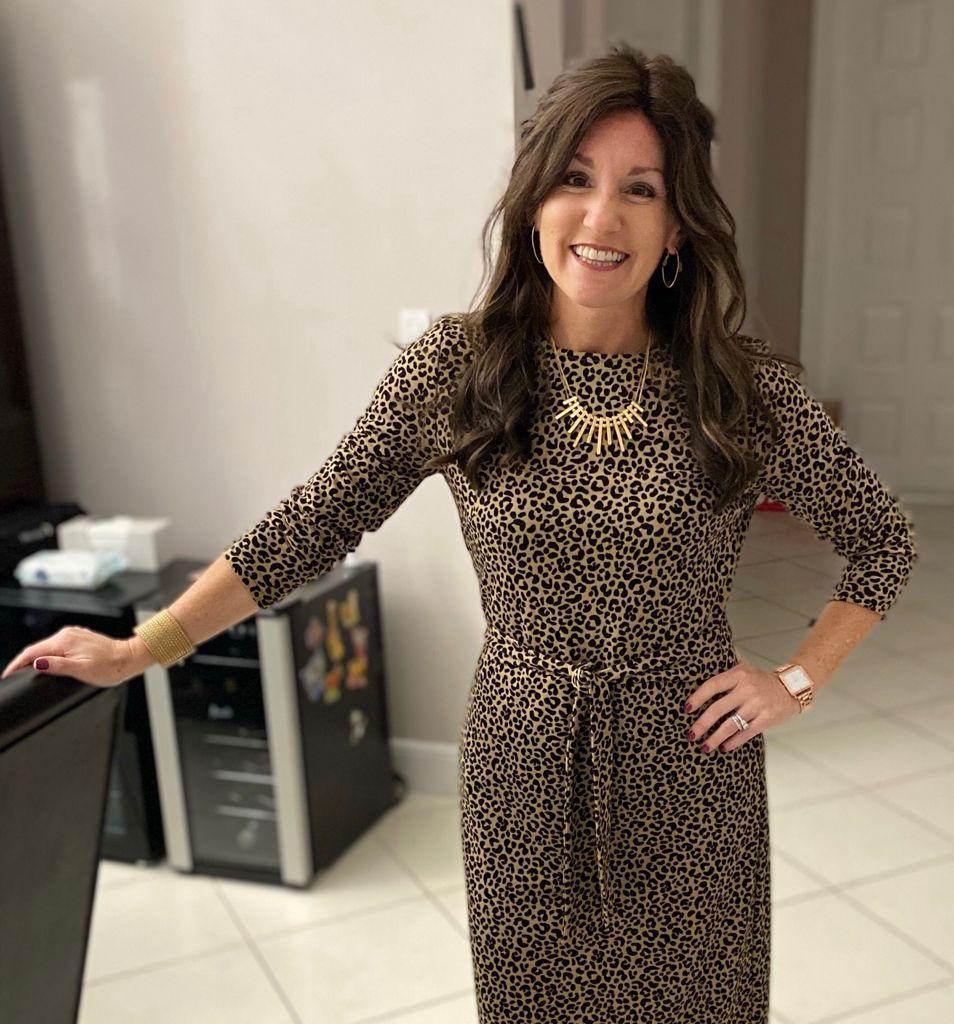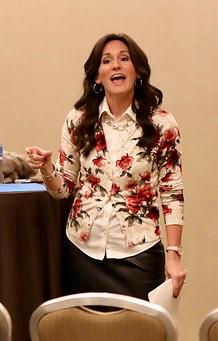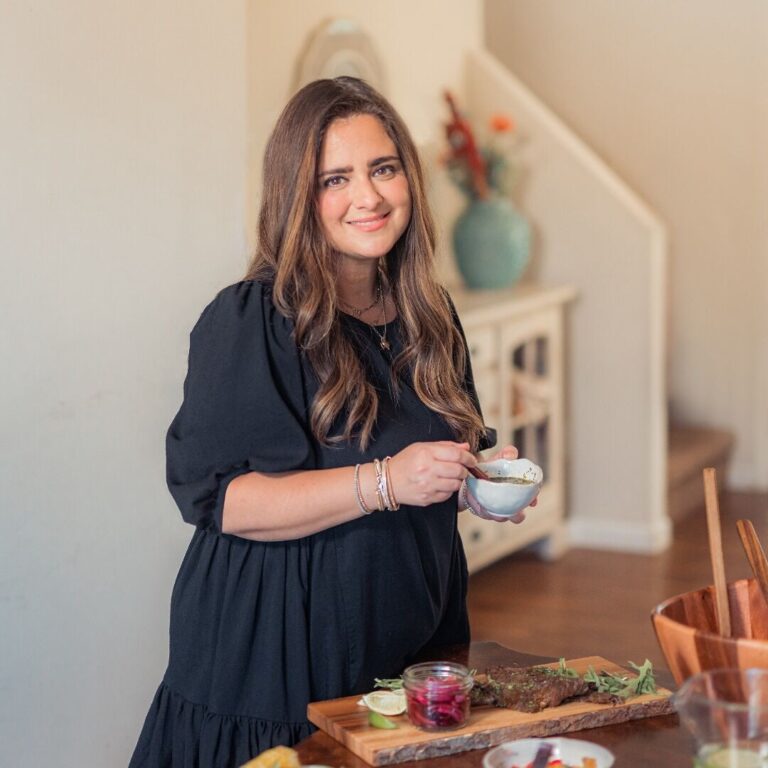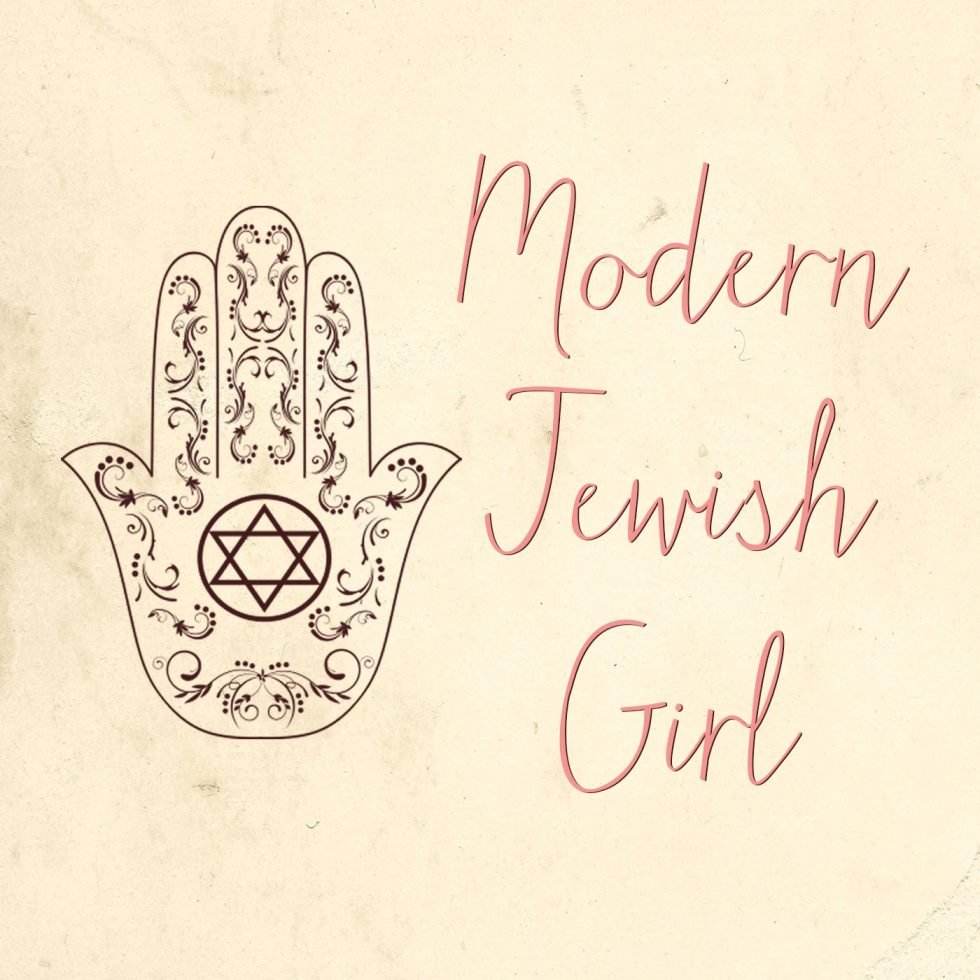While dating can be fun, exciting and filled with giddy butterflies, it’s just as often frequented by overthinking, anxiety and major nausea-inducing insecurity. When going through the process, it’s essential to have an objective party to talk things through with. Enter Devorah Kigel.
Devorah is a dating coach and speaker from Passaic, New Jersey, who has made it her mission to ease that process for women. She’s guided close to 150 couples to the chuppah, going on to help them remain happily married afterward. “Once you get married, that’s when the work begins,” she says.
And that’s just one piece. This wife and mother of four frequently speaks at high schools, colleges and women’s events, discussing topics of interest to women, such as tzniut (modesty), hair covering, parenting and shalom bayit (peace in the home). Her personal passions and struggles permeate her talks; she likes to speak from true experience.
Her Own Journey
Devorah became more deeply connected to her Jewish roots later in life, when she started working in Manhattan after grad school. A baalat teshuvah (returnee to Judaism), she has been observant for 25 years and married to her husband for nearly 22 of them. The two are now a powerhouse couple at Emet, a kiruv (outreach) organization based in Queens. The family is known for hosting packed Shabbat meals in their home, for personally mentoring their many students and for teaching classes.

Students are drawn to the Kigels as if one of Devorah’s signature mini carrot muffins was dangling in front of them. But, like many great stories, what seems like an obvious match on the outside—the Kigels and kiruv—actually took a bit of maneuvering and some Divine Intervention to come to fruition.
The Kigels began their married life on Manhattan’s Upper West Side. Devorah’s husband, Reuven, was working on Wall Street, while she worked in the home, raising her baby with a second on the way. As someone constantly focused on growth, she looked around for Torah classes. While there were offerings, there was maybe only one given by a woman.
“Women were not teaching at the majority of the outreach organizations I looked at, and certainly from my background, [as someone who used to think Judaism was sexist], I just felt like it was such a shame,” she explains. “But one day I started thinking—I believe it was the Lubavitcher Rebbe who said, ‘When you see something that needs perfecting, it’s Hashem telling you that you need to be a part of the perfecting process.’”
Divine Providence worked unbelievably fast after that. A few days after Devorah had that thought, she got a call from Jodi Samuels and Steve Eisenberg, two individuals she knew from the Upper West Side who were also the founders of the Jewish International Connection of New York (JICNY), a local kiruv organization for young Jewish professionals, asking her to teach a Torah class to women.
“At first I was shocked. I couldn’t believe they wanted me to teach; I had been frum (religiously observant) for five minutes,” she says, laughing. “But also, it was hard not to get the message. I had been thinking about doing this literally days before. So, I said, ‘Okay Hashem, if this is what You have in mind, then let’s do it.’”
She decided to put together a series on hot-button women’s issues in Judaism, a passion point for her. This turned into a set of eight classes on dating, marriage, prayer, the mechitza (the dividing barrier between men and women at synagogues) and a woman’s role in Judaism, to name a few. The planning took time, persistence and hard work. “I spent about 15-20 hours on each class,” she says. “It took a very, very long time.” But it paid off—Devorah taught the series once a year at JICNY for several years thereafter and it jumpstarted her career as a speaker and educator.
The Turning Point
“People would tell my husband all the time that he would be such a great kiruv rabbi,” Devorah says. “We thought it was ridiculous, though, because he had a lucrative Wall Street trading job and kiruv rabbis were a dime a dozen. We decided to put our energy into my teaching instead, since there were far fewer female speakers.”
However, about a month after the Kigels moved into a new apartment on the Upper West Side, Rabbi Kigel’s Wall Street job essentially disappeared. He needed to pivot and look for something new. He began trying out other industries, like commercial real estate and mortgages, but nothing took off. “Hashem turned the spigot of parnassa (income) firmly to the off position for about five years,” Devorah shares.
About a year and a half after Reuven left Wall Street, the Kigels exhausted their savings. They needed to move out of pricey Manhattan and were looking toward Passaic, a growing frum community in New Jersey. “We left New York City kicking and screaming,” Devorah says. “It was a painful time.”
The Kigels were an Upper West Side staple, often hosting Shabbat meals there, and Devorah was nervous no one would come to the suburbs. Thankfully, one of her mentors gave her some loving—but firm—reassurance: “Devorah,” she said, “do you think Hashem is firing you? He can do anything. You don’t think He can bring Shabbat guests to New Jersey?”
Devorah looks back at her erroneous thinking with humor. “The joke is that now, at least before coronavirus hit, we were having between 10 and 60 guests every Shabbat,” she says. “Our brains are limited, so sometimes we limit Hashem.”
Shortly after the Kigels got to Passaic, her husband joined the local kollel (a Talmudic study framework for married men). Learning there for a year and a half while working gave him more tools to transition to a rabbinic job. Then, through one of their Shabbat guests, he heard about a position with Emet, a Jewish outreach organization.
“Our brains are limited, so sometimes we limit Hashem.”
Devorah Kigel
It was complicated, though; Devorah had given birth to her fourth child nine months earlier. At the interview, her husband learned that he would need to be out of the house doing on-campus programs in Queens and Manhattan two to three nights a week.
With four kids under seven at the time, he thought such a role would be impossible and turned down the opportunity. One of their rabbis then discussed this with Devorah, explaining that in their particular situation*, her husband would need to be out of the house from AM to PM anyway in order for the parnassa to kick in. “At that point, we were in such a desperate place, I just said, ‘Naaseh v’nishma’ (we will do and we will hear),” she says. “I was willing do anything, even though I knew it would be extremely difficult.”
Luckily, the job was still available, and Reuven took it. “Now, 13 years later, he is truly one of the most successful kiruv rabbis in the United States,” Devorah says. “It’s amazing to think we almost missed this.”
Finding Her Mission
As the Kigel kids grew, Devorah’s career did as well. She prioritized parenting when her children were young, staying home to raise them for over a decade. “I always say you can do it all, just not all at the same time,” she says. So, when her youngest started school, she finally had some free time to focus elsewhere. Devorah decided to use those hours to develop a dating coaching business, in addition to expanding her speaking engagement opportunities.

“I thought about what my skill set was and how I could help Jewish women,” she explains. “Dating can be really challenging, so I wanted to help women navigate the process, which can be quite painful and grueling. Men don’t always treat women with respect and dignity. I wanted to show women they can be assertive and still feminine.”
Devorah doesn’t limit her services to the religiously observant. She coaches women all across the spectrum—secular, traditional, Modern Orthodox, yeshivish, Ashkenazi, Sephardi, and from all ages and places, including Israel, Argentina and France.
She speaks to women after dates, of course, but Devorah also makes herself available to them as a bit of a crisis hotline. “I’ve had two people call me from the bathroom on dates,” she shares. “They needed to know how to end things—quickly.”
She also teaches kallahs (brides) and helps her clients through marriage coaching on the other end as well. “I’m really a one-stop shop,” she says.
When it comes to speaking, she continues to teach topics she’s passionate about—always those she’s struggled with herself, so she can speak from the heart, share her own funny stories and be relatable to women from all backgrounds.
Following in Her Footsteps
Devorah’s suggested prerequisite for getting into dating coaching is to be happily married yourself for at least 10 years. Shana rishona (the first year of marriage) is when you’re building your foundation. But when she was in year six, a rabbi told the Kigels that, really, shana rishona lasts 10 years. “Now that I’ve been married almost 22 years, I’m in total agreement,” she says. “The first 10 years, we were adjusting to each other, figuring out what works and what doesn’t, avoiding landmines and really understanding what marriage is about.”
Once you’ve passed that benchmark, she says to read a lot of books, go through your personal dating experiences and pull out some key takeaways, and then get trained. Devorah was trained by Rosie Einhorn, a dating coach and psychotherapist in Israel who cofounded Sasson V’Simcha, a nonprofit that serves Jewish singles.
If you’re more interested in speaking, Devorah suggests finding your niche. Look back into your life and see what has really resonated with you, or think about the pain and challenges you’ve faced and what you can take from them that would help someone else. “My difficult journey to meeting my soulmate definitely prepared me to give women encouragement and advice through this process,” she explains. “Then there’s the financial debacle we went through. I wouldn’t wish that on my worst enemy, but now I can help others through similar situations. You can give meaning to the pain you’ve gone through by using those struggles to help another person.”
“You can give meaning to the pain you’ve gone through by using those struggles to help another person.”
Devorah Kigel
Devorah builds all her work on this message. She encourages her students to examine their own spiritual toolbox, see what talents Hashem gave them and then go use them for good.
At the end of our conversation, she mentions that she listened to an interview with Slovie Jungreis Wolff, a speaker herself and daughter of the renowned Rebbetzin Esther Jungreis, a”h who was a mentor of Devorah’s. During the talk, Slovie tells a story of how her students would always ask her to write a book of her teachings. She went to her mother and said she didn’t know how to write a book, thinking it was a ridiculous idea. “Rebbetzin Jungreis said to her, ‘If you have a dream, don’t be afraid,’” Devorah notes, alluding to her own journey. “’You just have to start doing and Hashem will help you be successful.”
If you want to get in contact with Devorah, visit devorahkigel.com or find her on Facebook as Devorah Rose Kigel. You can also find Devorah on YouTube, Instagram and LinkedIn. To listen to a sampling of Devorah’s classes, click here.
*NOTE: This does not apply to all marriages or circumstances. If you are in a similar situation, please discuss this with your rabbi.










[…] week, we have Dating Coach Devorah Kigel on the podcast! I am so excited to speak with Devorah, it really feels like a long time coming. I […]